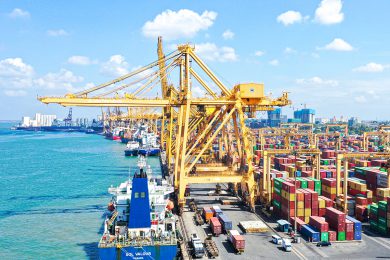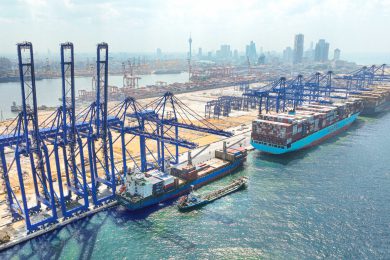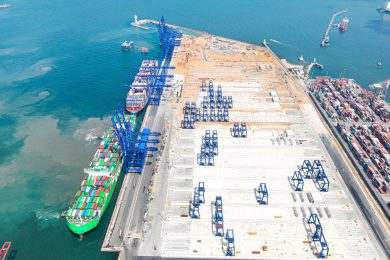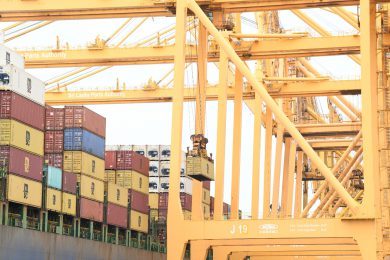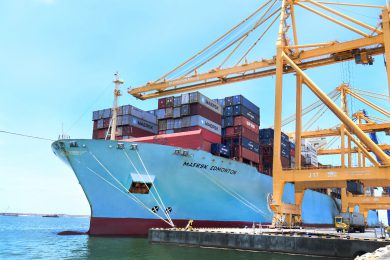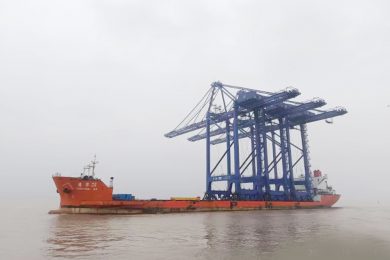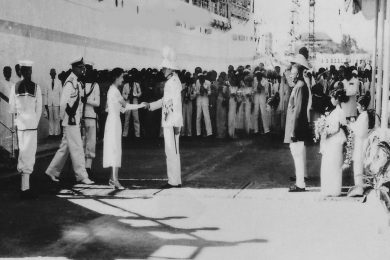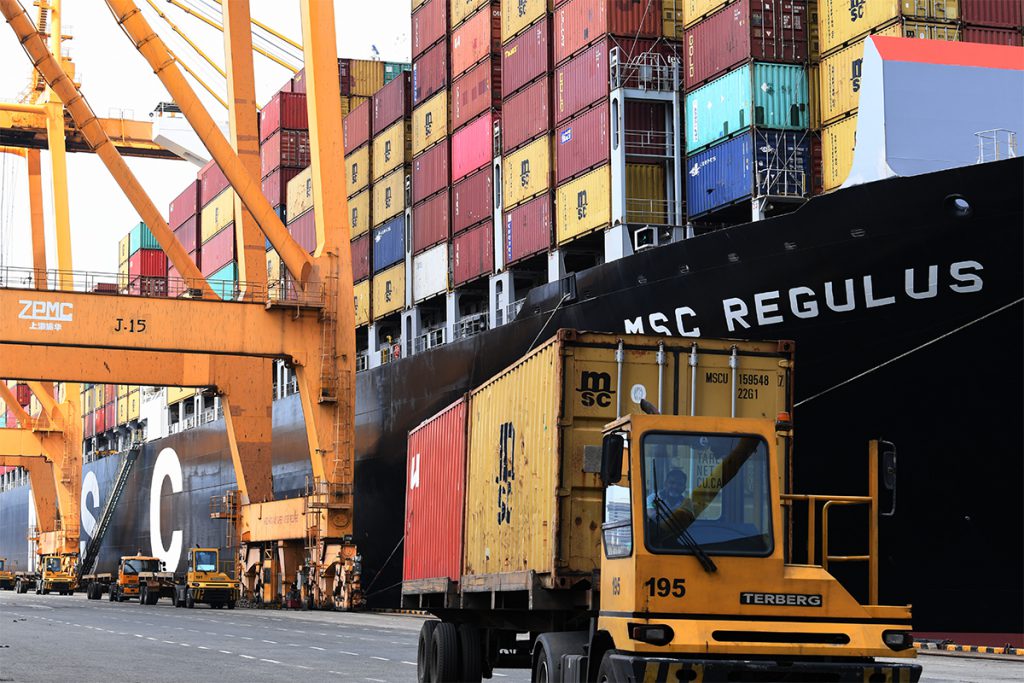Asian Ports Dominate Global Container Port Performance Index
World Bank and IHS Markit report highlights large efficiency gaps between world’s key container ports.
Asian container ports are the most efficient in the world, dominating the Top 50 spots according to the new global Container Port Performance Index (CPPI) launched by the World Bank and IHS Markit. The report scored ports against different metrics, making the efficiency ranking comparable around the globe by assessing and standardizing for different ship sizes and container moves per call. The CPPI is intended to identify gaps and opportunities for improvement that will benefit stakeholders from shipping lines to national governments to consumers.
More than four-fifths of global merchandise trade by volume are carried by sea, and approximately 35 percent of total volumes and over 60 percent of commercial value is shipped in containers.
“The development of high-quality and efficient container port infrastructure is a key contributor to successful, export-led growth strategies both in developing and developed countries”, said Martin Humphreys, Lead Transport Economist and Global Lead for Transport Connectivity and Regional Integration in the World Bank. “Efficient ports also ensure business continuity and improve the resilience of the maritime gateways as crucial nodes in the global logistical system.”
“Inefficient port operations have a very direct impact on supplies across the country and their populations. During the COVID-19 pandemic we saw port delays causing shortages of essential goods and higher prices. Over the longer term such bottlenecks can mean slower economic growth, higher costs for importers and exporters and even resulting in less employment,” added Turloch Mooney, Associate Director, Maritime and Trade at IHS Markit.
Regional disparities
East Asian ports dominate the CPPI, led by Yokohama in Japan ahead of King Abdullah Port in Saudi Arabia and Qingdao in China.Algeciras in Spain is the highest ranked European port, in 10th place. Colombo in Sri Lanka is the top-ranked port in South Asia at 17th place and Mexico’s Lazaro Cardenas leads the Americas at 25th. Canada’s Halifax is the only other North American port in the Top 50. Djibouti, in 61st place, is the top-ranked African port.
Key port performance metrics such as minutes per container move show large discrepancies in global port efficiency, with top performers such as Yokohama taking just 1.1 minutes on average to load or unload a container in a standard port call while the average for equivalent workloads in African ports is more than three times that at 3.6 minutes.
The Container Port Performance Index is based on total port hours per ship call, defined as the elapsed time between when a ship reaches a port to its departure from the berth having completed its cargo exchange. Greater or lesser workloads are accounted for by examining the underlying data within ten different call size ranges. Five distinct ship size groups are accounted for in the methodology given the potential for greater fuel and emissions savings on larger vessels.
###
About the Container Port Performance Index (CPPI)
Developed by the Transport Global Practice of the World Bank and IHS Markit’s Maritime & Trade Division, the global Container Port Performance Index is a comparable index of global container port performance intended to serve as a reference point for key stakeholders in the global economy, including national governments, port authorities, development agencies, supra-national organizations and private operators of trade, logistics and supply chain services.
About the World Bank Transport Global Practice
Transport is crucial to the World Bank’s mission of ending poverty and boosting shared prosperity. With the right policies and resources, transport has the power to propel economies, help take on climate change, and connect people to essential services like health care or education. To harness the full potential of sustainable mobility, the World Bank is helping client countries develop transport infrastructure and services that are safe, green, efficient, and inclusive. The World Bank is the largest provider of development financing for transport globally in all modes. Over the last decade, the World Bank has committed $49 billion in 339 transport projects in 93 different countries. The Bank produces numerous reports and advisory services on transport and mobility per year, covering a wide range of topics.
About IHS Markit
IHS Markit (NYSE: INFO) is a world leader in critical information, analytics and solutions for the major industries and markets that drive economies worldwide. The company delivers next-generation information, analytics and solutions to customers in business, finance and government, improving their operational efficiency and providing deep insights that lead to well-informed, confident decisions. IHS Markit has more than 50,000 business and government customers, including 80 percent of the Fortune Global 500 and the world’s leading financial institutions. Headquartered in London, IHS Markit is committed to sustainable, profitable growth.
Source: World Bank



